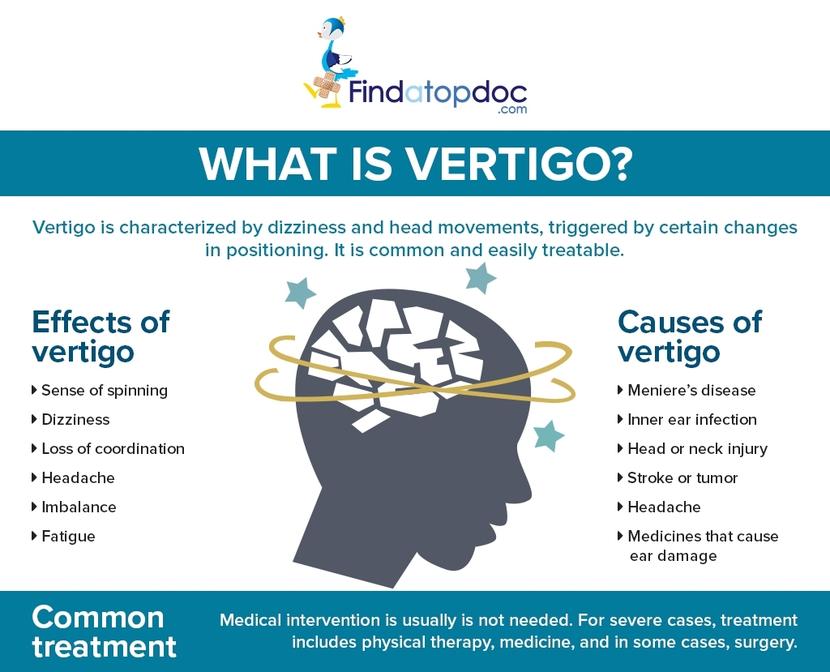Vertigo - Causes, Symptoms, and Treatment

Vertigo is a condition that causes a person to feel like they are spinning or moving when they are actually stationary. It can be a very distressing symptom, and it can make it difficult to go about daily activities.
Causes of Vertigo
There are many different things that can cause vertigo, including: * Inner ear problems: The most common cause of vertigo is a problem with the inner ear. The inner ear is responsible for balance, and if it is damaged or malfunctioning, it can send signals to the brain that cause vertigo. * Head injuries: A head injury can damage the inner ear or the nerves that connect the inner ear to the brain. This can lead to vertigo. * Certain medications: Some medications, such as antibiotics and antidepressants, can cause vertigo as a side effect. * Meniere's disease: Meniere's disease is a disorder of the inner ear that can cause vertigo, hearing loss, and tinnitus. * Vestibular neuritis: Vestibular neuritis is an inflammation of the vestibular nerve. This nerve connects the inner ear to the brain, and if it is inflamed, it can cause vertigo.
Symptoms of Vertigo
The most common symptom of vertigo is a feeling of spinning or moving when you are actually stationary. Other symptoms of vertigo can include: * Nausea * Vomiting * Dizziness * Lightheadedness * Balance problems * Double vision * Tinnitus
Diagnosis of Vertigo
If you are experiencing symptoms of vertigo, it is important to see a doctor to get a diagnosis. Your doctor will ask you about your symptoms and perform a physical examination. They may also order some tests, such as a hearing test or a balance test.
Treatment of Vertigo
The treatment for vertigo will depend on the cause. If the vertigo is caused by an inner ear problem, your doctor may recommend exercises to improve your balance. They may also prescribe medication to reduce nausea and vomiting. If the vertigo is caused by a head injury, your doctor may recommend surgery to repair the damage. Vertigo can be a very distressing symptom, but it is important to remember that it is usually not a sign of a serious medical condition. If you are experiencing symptoms of vertigo, see your doctor to get a diagnosis and treatment.










Comments ()